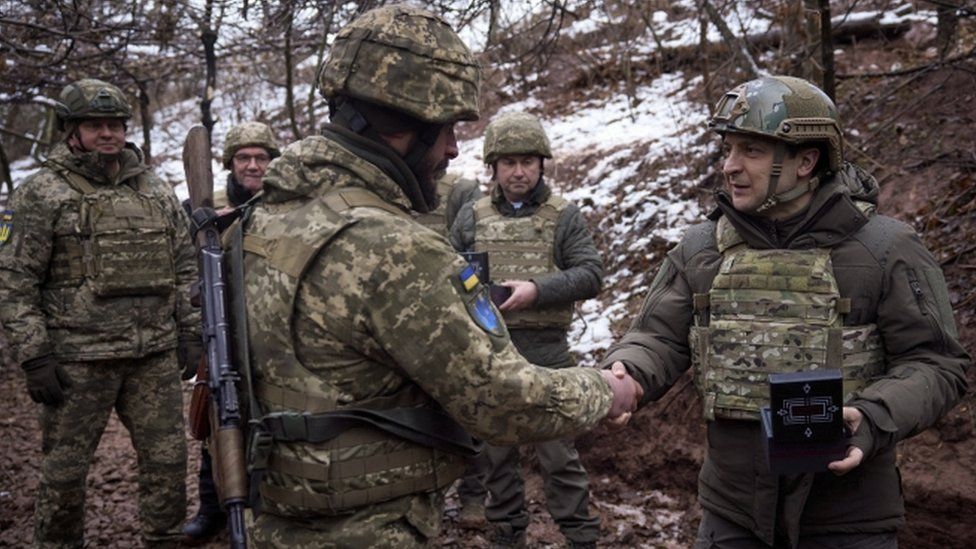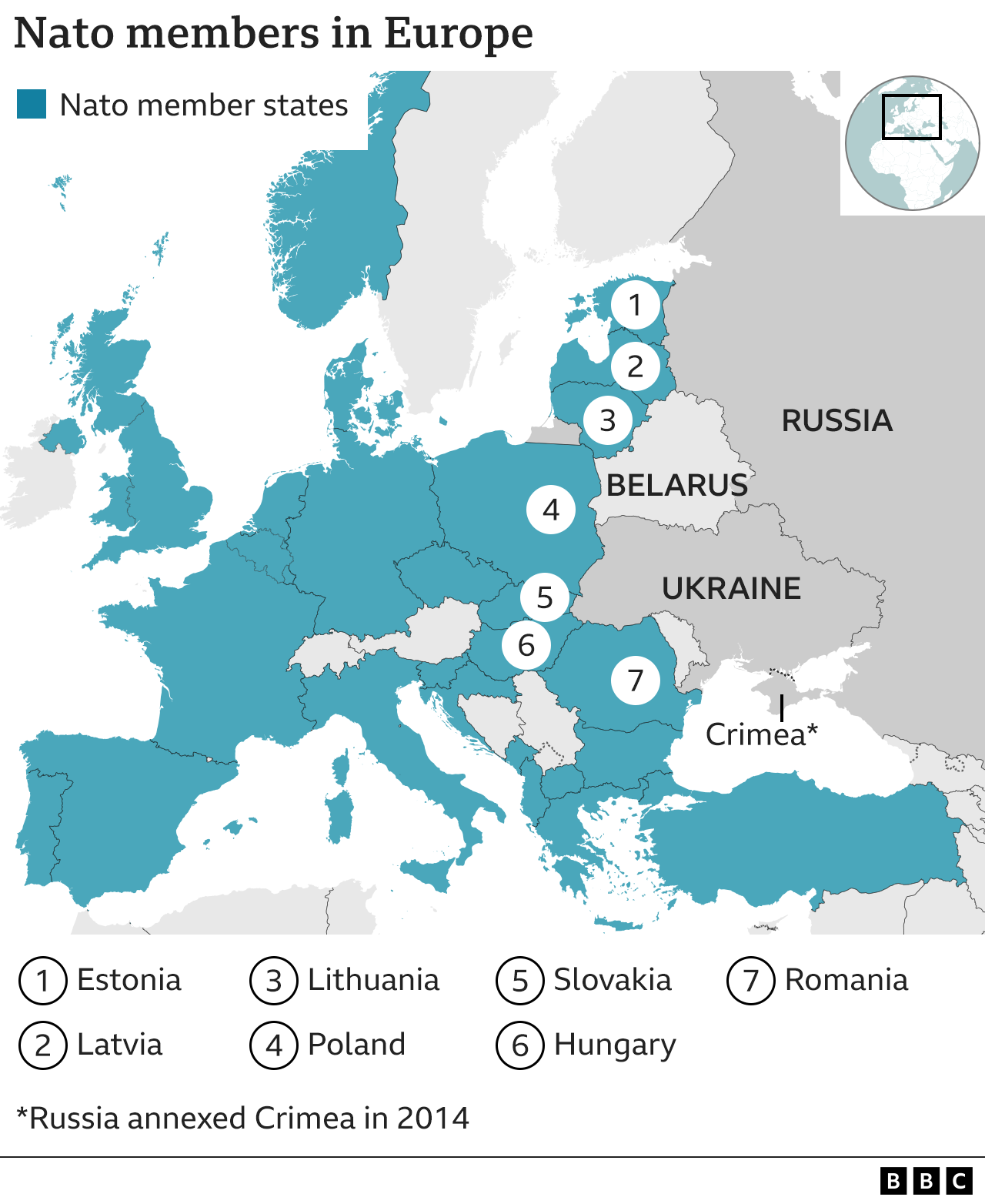Back to the U.S/Russia/Ukraine Drawing Board
"Russia's gas supply to Europe — which is crucial to Moscow's economy — currently passes through Ukraine, with critical infrastructure in the country. A major factor that deterred Putin from taking over more of Ukraine than it seized in 2014 while Biden was vice president has been the likelihood that Ukrainian forces defending against Russian invasion would destroy key elements of this infrastructure, cutting off the gas flow.""Nord Stream 2 bypasses Ukraine and removes that obstacle to Putin's ambitions. Attempting to deflect criticism of his green light for Nord Stream 2, Biden made an agreement with Germany. If Russia attempts to use energy as a weapon against Ukraine, Berlin will take "unspecified action" -- likely to be none."Colonel Richard Kemp, Gatestone Institute"We are at a moment of crisis and have been for some weeks now given the Russian buildup, and it will take a high level of engagement to address this and to find a path of de-escalation."Unnamed senior U.S. official
 |
| Pictured: Biden and Putin meet in Geneva, Switzerland, on June 16, 2021. (Photo by Peter Klaunzer/Pool/Keystone via Getty Images) |
The Kremlin's denial of any intention to invade Ukraine is in direct contrast to the United States informing its allies in NATO that an invasion of Russia's near neighbour is imminent, given tens of thousands of Russian troops amassed near the border with Ukraine. As early as the first month of the new year of 2022. January preferentially, in view of the morass the winter-frozen terrain will assume come spring. What other purpose could there conceivably be in amassing a panoply of heavy military equipment at the border?
Ukraine's government doesn't seem to be particularly impressed at what might alternately be a serious intimidation ploy. And it too appears convinced, on the basis of its own intelligence and security insights that the Kremlin is planning another invasion. Ukraine, after all, suffered the experience of a previous presence of Russian military personnel, aiding, abetting and encouraging the ethnic Russian-Ukrainian separatists determined to move the Donbas back into the Russian sphere of possession.
Russia's peremptorily decisive exploitation of the standoff between the Ukrainian military and the Russian dissidents by the opportunistic capture of the Crimean peninsula in 2014, securing the port and surrounding geography, annexing it into greater Russia in a recapture of history, claiming it to be a part of Russia's beating heart. Vladimir Putin defends Russia's intense interest in Ukraine as an expression of their shared heritage; one indispensable to the other.
President Biden in early December assured his Russian counterpart of the American commitment to upholding Ukraine's sovereignty in the face of Russian aggression, that Ukraine's territorial integrity was sacrosanct in the international community; warning that should Russia invade it would earn itself further economic, social and political penalties. In sanctions which have already had a deep effect on Russia's economic security.
Both the United States and the United Kingdom have stated each has no intention of becoming militarily involved should conflict break out between Russia and Ukraine.
As for Germany, it is abundantly clear that its high dependency on Russia as a vital energy source will ensure it too while censuring Russia for its intransigence, would never commit to military involvement. In the absence of that kind of commitment from the U.S., U.K. and Germany, no other NATO members could be relied upon to go beyond sanction punishment for Russia in the event of military action in Ukraine.
President Vladimir Putin must feel pretty confident of his relationship with the American President, both longtime acquaintances from a previous U.S. administration. No hard feelings appear to be evident from President Biden toward Mr. Putin over Russia's decision to return Crimea to Russian possession. Leading President Putin to the confident demand that NATO withdraw from Russia's near-abroad, a presence that stifles Russia's ambitions for a future of restoring the Soviet Union to its former greatness.
Nothing less than a ban on expansion of the North Atlantic Treaty Organization welcoming former Soviet states like Ukraine and Georgia, plus the withdrawal of NATO forces in Europe to 1997 levels. Demands that have failed spectacularly to impress NATO's allies and its membership. The exchange of a NATO pullout from eastern Europe, Russia's playground, is unlikely to result from Mr. Putin's demands that would see Russia pulling out its troops and weaponry from the Ukrainian border.
An anonymous U.S. senior official noted that only if de-escalation occurs at the Ukraine border can a useful conversation take place between the U.S. and Russia, to include issues such as arms control. Yet high-stakes diplomacy are set to take place through discussions in early 2022. Two days before a NATO-Russia Council meeting is scheduled to take place, negotiators for Russia and the U.S. are set to meet January 10. Similarly, top advisers to Mr. Putin and German Chancellor Olaf Scholz plan to meet prior to the NATO-Russian talks.
Threats by the U.S. and its allies to impose harsh economic reprisals on Moscow should its troops march into Ukraine carry weight, but just so much, absent the West's unwillingness to go any further in the absence of hints of potentially sending NATO troops into Ukraine to aid in its defence. However, American officials insist no deals will be made that shortchange the concerns of Ukraine and European allies. "The principle is inviolable -- nothing about them without them", said State Department spokesman Ned Price.
In view of the American abandonment of another of its allies and dependents less than five months ago leaving Afghanistan to cope with its adjustment to the return of the Taliban, a fiasco of huge dimensions when the Biden administration chose to leave its stranded allies in a rush to return U.S. troops back home, entrusting its military equipment to the good graces of a terrorist group primed for revenge on a population that favoured a Western-approved government to that of the viciously Islamist Taliban, it's difficult to judge just how content Ukraine's President Zelensky is with the U.S. promise of loyalty to a commitment.
 |
| Ukrainian President Volodymyr Zelensky on the front line on 6 December EPA |

Labels: Invasion, NATO, Russia, Sanctions, Threats, Ukraine, United States
0 Comments:
Post a Comment
<< Home